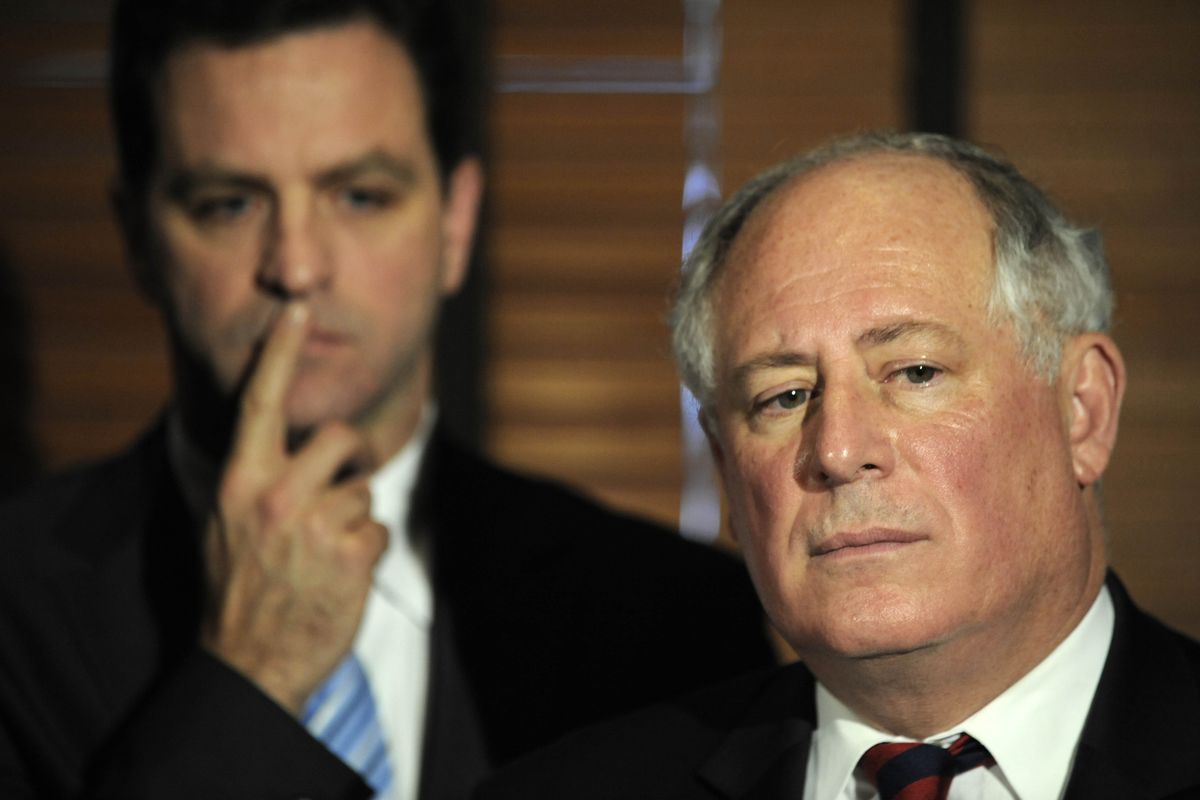Stricter gun laws proposed
California, New York, Illinois discuss limits

SACRAMENTO, Calif. – Democratic leaders in three big states have used this summer’s mass shooting in Colorado to push bills that would crack down on assault weapons and ammunition sales, rekindling a debate that has not gained much traction in Congress or on the presidential campaign.
In Illinois, Gov. Pat Quinn proposed that his state enact a strict ban on assault weapons, similar to California’s. New York lawmakers have proposed wide-ranging legislation that would limit weapons purchases.
California Attorney General Kamala Harris and the Democratic state Senate leader back a bill that would make it more difficult and time-consuming to reload assault weapons. The chairmen of public safety committees in California’s Assembly and Senate co-authored a bill that would require dealers to report purchases of large quantities of ammunition to law enforcement authorities.
The suspect in the July 20 Colorado shooting, James Holmes, legally bought 6,000 rounds of ammunition online without raising authorities’ attention. He had four weapons, including an assault rifle, on him after the rampage that killed 12 people and injured 58 at a midnight movie screening.
“California sets the pace for the country. If there’s no action in Congress, we better do something here and hope it catches fire in other states,” said state Sen. Leland Yee, a San Francisco Democrat who authored the legislation that would slow down the process of reloading an assault weapon with a new magazine.
With strong support from Democratic Gov. Andrew Cuomo, New York lawmakers have offered a similar rationale for proposing a series of bills that together would give their state the nation’s toughest gun control laws.
“I think there is appetite for reform,” Cuomo told reporters last week. “I think that’s a good thing, and I think that’s one of the issues I’m going to have at the top of the list next January.”
The prospects for the proposals are uncertain, but Democratic political strength in each state provides momentum that would be largely absent in Republican-dominated states. California, for example, has some of the toughest gun laws in the country and last year enacted a ban on the open carry of unloaded handguns.
Democrats control the statehouse and governor’s office in California and Illinois, and all but the state Senate in New York. Even with half the legislature in Republican hands, Cuomo said he believes Republican lawmakers will work with him on gun-control legislation.
In California, Yee and Assemblywoman Nancy Skinner, who authored the bulk ammunition bill, said they are optimistic because they already have the support of influential lawmakers – and, in Yee’s case, the state attorney general.
The proposals are not likely to be addressed in earnest until lawmakers return next year.
The push in some of the nation’s most populous and liberal-leaning states illustrates a national divide, often along party lines, over whether the public should have unfettered access to military-style weaponry and ammunition.
“It’s time for the people to band together in our state … and do something about these weapons. We should remember those who lost their lives,” Quinn said last month after he added his gun control proposal onto a bill that had dealt with ammunition sales.
New York state Sen. Michael Gianaris has proposed legislation limiting firearms purchases to one a month, requiring background checks for all gun sales, a firearms safety course for gun buyers and a cooling-off period before a gun could be picked up after purchase. It also would require that sales of firearms and ammunition be reported within 24 hours.
Fellow Democratic Sen. Jose Peralta also introduced a bill that would prohibit the sale or purchase of more than 500 rounds of ammunition during any 30-day period.
“The recent rash of gun violence makes clear that enough is enough,” Gianaris said in a statement.
The leaders hope the legislation will go further than gun control bills have in Congress, where Republicans are generally opposed to further restrictions and Democrats are reluctant to engage on the issue during a presidential election year.
After the Colorado shooting, two Democrats introduced a bill that would prohibit the general public from buying thousands of rounds of ammunition by mail or online.
Senate Majority Leader Harry Reid, a Democrat, said the Senate’s schedule is too crowded to allow a debate on gun control this year and has been noncommittal about whether Congress would consider the issue next year.